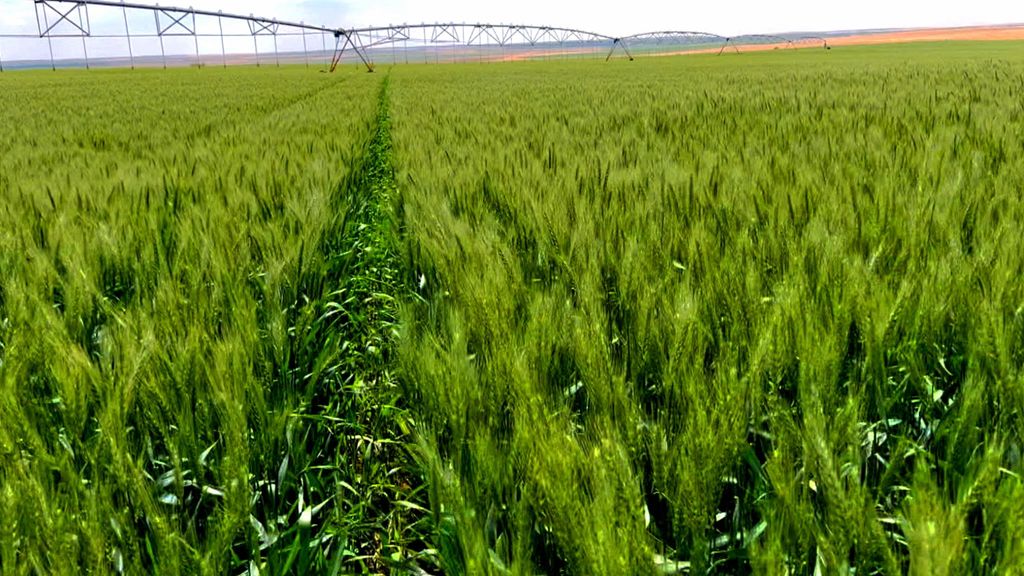NOS
NOS . News•
-
Daisy Mohr
Middle East Correspondent
-
Daisy Mohr
Middle East Correspondent
The Egyptian word for bread, what, also means life, and the Egyptians saw their bread as a basic right. Bread prices are kept low with government subsidies in hopes of keeping residents happy.
“Bread is the most important food in my life, whatever you eat, it should be bread. It’s just essential,” says Ahmed, as he queues at a bakery in Cairo to buy Arabic bread for his family. “We need bread to mobilize the strength to get back to work every day.”
Egypt is the world’s largest importer of wheat and at least three-quarters of it is from Russia and Ukraine. When the war came to an abrupt end this spring, the Egyptian government panicked. Stocks were dwindling, so where did all this wheat suddenly come from to feed over a hundred million Egyptians?
The Egyptian government never wants to depend on other countries again, so major grain projects began in the Egyptian desert. They have been busy cultivating there since May.
Reporter Daisy Mohr went to look at such a huge project:

A large grain project in the Egyptian desert
Small farmers are also working to increase their wheat production. “A lot of farmers in the area are converting. They will grow wheat because the government encourages it,” says Tarek, an onion farmer in the Nile Delta. Those around him see that fewer onions will be planted next season. The government buys wheat at a good price. “Bread is our main food. Look, the desert is big enough. All sorts of things can grow in this yellow sand, and we’re expanding more and more towards the desert.”
22 million tons of wheat
Hani al-Salmouni, a social and economic development expert in Cairo, says the plans are not entirely new, but they have gained momentum due to the war. “We consume about 22 million tons of wheat a year, of which 12 tons are for the production of bread and the rest for pasta and pastries and things like that. We produce four to six million tons of wheat ourselves and we want to try to increase that to twelve million. So we can at least of achieving self-sufficiency for our bread production,” says Salmoni. “It doesn’t look like the war is going to end anytime soon. We need to be able to take care of ourselves. Now we’re trying all the new wheat varieties so we can improve our production.”
The question is how realistic is that. Many Egyptians ignore concerns about water scarcity for now, but because of the war in Ukraine, there are now other priorities.
The reason for the protest of the price of bread
While almost everything is getting more expensive, affordable bread is on the table in Egypt at the moment. This reassures not only the baker and his customers, but also the government. Because once the price of bread rises, Egyptians are concerned and that can quickly lead to protests. This is the last thing the Egyptian government is waiting for. Therefore, it is of paramount importance to the government of President Abdel Fattah El-Sisi that grain stocks be secured through their production.







